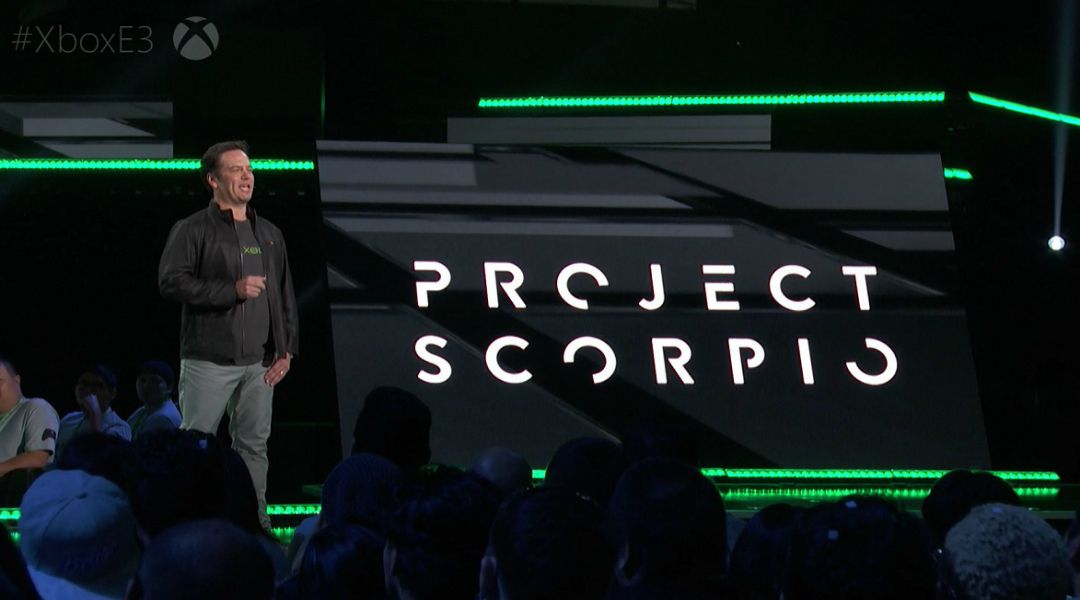Microsoft updates the Project Scorpio website to remove the mention of 'high fidelity VR' leading some fans to suggest that plans to support VR gaming have been dropped.
When Microsoft announced the Project Scorpio console at E3 2016, fans were delighted. Microsoft said that the console would be far more powerful than the standard Xbox One. The company also stated that Project Scorpio would offer 4K gaming and high fidelity virtual reality gaming too, including support for Bethesda's post-apocalyptic VR title, Fallout 4 VR. However, it seems that Project Scorpio will no longer offer VR gaming at launch, according to the console's updated website.
Sighted by NeoGAF users, Microsoft appears to have edited the Project Scorpio website, removing the mention of "high fidelity VR" from the list of the console's selling points. The bullet points for the improved Xbox One console now state that the console will offer true 4K gaming, 6 teraflops of graphics processing power, 320GB per second of bandwidth, and 8 CPU cores. The edited website still refers to the hardware as the "most powerful console ever."
Currently, it's unclear whether Microsoft has really chosen to drop high fidelity VR from Project Scorpio or whether the company has merely updated its marketing plans for the console and those marketing plans no longer include highlighting the fact that it offers virtual reality gaming. That would be peculiar, but is still a (faint) possibility. Some have also suggested that the removal of VR from the site is a response to the huge Project Scorpio leak that occurred yesterday and revealed several new details about the console's technical specs.
Given that VR support was a significant, highlighted feature when Project Scorpio was announced, many will be disappointed. As Xbox fans have seen PC players enjoy the Oculus Rift and PS4 players enjoy the PlayStation VR, it will be upsetting to learn that to play virtual reality games, they may have to switch platforms. Sure, the Xbox One nows supports Oculus Rift (in some capacity, at least) but it's not the same level as support as a console made specifically to deliver high fidelity VR.
On the other hand, some may argue that the decision to drop high fidelity VR support is a smart business decision by Microsoft. VR headsets haven't been selling fantastically well and Microsoft may feel that the market just isn't there right now to make it worth keeping high fidelity VR support in the Project Scorpio. Though, the company has dipped its toes into the VR waters already, having announced several VR headsets for Windows 10, so even if high fidelity VR support won't feature at the Project Scorpio's launch Microsoft may revisit the idea in future.

